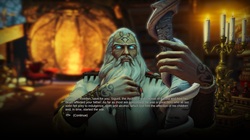 Time for some difficult decisions. Time for some difficult decisions. An empire is divided amongst warring siblings. Now a half-dragon must claim his rightful place on the throne of the empire. But first he must defeat his brothers and sisters with lethal force. Running an empire at war is no easy feat.
1. Gameplay
Divinity: Dragon Commander is an amazing game that does a great job in coming up with creative decisions the player can make. While the decisions and their outcomes are simple enough for young players to understand without much effort, the cultural relevance will keep players of all ages interested. Whether it’s deciding on the fate of gay marriage, legalization of marijuana, use of green technology in the military, use of atomic weaponry on the battlefield, or any other of a huge list of possible topics for debate, players will be constantly tasked with deciding the ultimate fate of many major issues within the empire. The combat is a fairly fun element too. Outside of making policy decisions, the player will have to command an army against a powerful group of enemies. The war isn’t impossible to win, but it takes a player who is able to quickly understand the dynamics of the battlefield and who knows how to extend his reach without overextending and leaving himself vulnerable. There is a ridiculous amount of replay value as well. While each battle may be its own contained system, it doesn’t get boring. Each time the player enters combat, especially when the odds are heavily against him, matches are exciting. They’re just difficult enough to make it a challenge without ever feeling like things are completely overwhelming. If the player can survive the first 3 minutes of a battle, he will likely win. This game isn’t perfect. The decisions were so simple that they lacked any significant long-term consequences. Controls in combat, especially while in dragon-form, were very difficult to use. The tutorial was basically nonexistent and there was very little time to learn which units were actually useful. But all of these could be easily fixed in a sequel and none of them take away significantly from the rest of the game.
This game is surprisingly long with great replay value. Depending on how cautiously the player approaches each battle, the entire campaign could take upwards of 15 to 20 hours to complete. Even then, it is extremely unlikely that the player will see all of the possible situations and decisions that can be made. There is definitely enough content for a second full playthrough of the campaign. That also doesn’t include the skirmish and multiplayer modes that the player can try. Multiplayer matches are full map-style campaigns that can rage on for a while. It’s a very interesting thing to try, especially if players are into the combination of Risk-style turn-based strategy with the Starcraft-style real-time strategy.
Outside of combat this game was very easy to learn. Decisions were interesting but not difficult. It almost always boiled down to “which race can I afford to annoy right now?” The game doesn’t hide any decisions or options, so players shouldn’t have a problem with any of this. Inside of combat can be a different matter. The real-time strategy elements are present but not as complex as similar games like Starcraft. There are basically one or two unit types that will be able to dominate the battlefield. Everything else just ends up as cannon fodder. Additionally, using any of the RTS elements is almost impossible while the player is in dragon form. I frequently found myself spawning in as a dragon, destroying the entire enemy army, then despawning simply to build structures, units, or order my army to a new location. While I don’t fault the devs for not finding a better solution (I haven’t come up with one yet), it could definitely get annoying at times. 2. Parental Notices
Violence is not a major factor in this game. While all of the real-time strategy battles will involve violence, all of it only involves machines or vehicles fighting other machines and vehicles. Even the “troopers”, the most basic unit in the game, look like brass teapot spiders. There is never any blood from any units on the battlefield. The only possible exception is when the player turns into a dragon. In dragon-form, if the player is hit a blood splotch will show up on the screen to indicate that the player is taking damage.
Sex and sexuality are somewhat common subjects among the various decisions that the player will make over the course of the game. Most of these topics tend to be around discussions and conflicts over homosexuality and the way that it should be treated within the player’s empire. The views from both sides are presented somewhat faithfully, although the “anti-homosexuality” crowd is easier to understand from the undead, who value the religious sanctity of the issue, rather than the dwarves, who value the traditional sanctity of marriage. Sex is discussed occasionally amongst the generals. The most obvious is when two generals of opposite gender discuss what happened when they were having sex. The female general ends up realizing that she’s actually a lesbian and can potentially use that as her opportunity to come out of the closet. Romance and sexuality come up between the player and his wife. While some of the wife options are more likely to discuss the topic openly than others, the most obvious form of sexuality with a spouse comes in one of the forms that Ophilia can take. Depending on the player’s decisions, Ophilia can acquire the form of a beautiful, curvaceous woman. After this decision, Ophilia will always be topless wearing a robe over her lower regions and conveniently placed hair over her breasts. The romance between the main character and his wife never goes beyond talk, though.
Substances play a minor role in this game, mostly in the various political decisions the player will have to make. The most visually obvious form of substances in this game comes with the bar. The bar is a location on the player’s ships where the generals tend to spend their time. Alcohol and cigars can be seen in this area, but if any characters consume such substances it is never made obvious. One of the decisions the player has to make has to do with the legalization of marijuana. While the game uses a different name for the substance, the nature of the debate and its various points and counterpoints were all exactly the same as the politics surrounding the legalization of marijuana. Use of the drug, however, is never depicted and after the decision is made it is never brought up again. The player will also have the opportunity to rule on whether publications should be allowed to write about topics that hurt the empire economically. This specifically has to do with stories coming against the production and distribution of “smoke-sticks” (read “cigarettes”). While the player is not voting directly on whether smoke-sticks should be legal, allowing publications to write negatively about them does impact their sales (and, by this, the overall economy of the empire).
There is one conversation the player can see where some of the generals get involved in a bit of gambling with each other. One of the grumpier generals ends up winning and having a great time. This is the only time gambling is brought up in the game. 3. Other Factors
There are no modding tools available for this game.
Religion does play a factor in a few of the decisions the player must make over the course of the campaign. The undead race are particularly zealous about the topic of religion, using it to cite nearly all of their recommendations. Their entire existence is due to the decision of “The Seven”. If the player makes decisions that would go against what the dead say The Seven agree with or uphold, there is a very good likelihood that the player’s luck modifier will be decreased. This will decrease the player’s percentage chance of randomly winning a battle in which he doesn’t directly participate. Ophilia, one of the player’s potential marriage options, is a member of the undead race. As a result, many of the things she talks about also have to do with religion and The Seven. Strangely enough, she wears a cross around her neck.
Anti-law is not a factor in this game.
There are people playing this game online, but I wouldn’t recommend players attempt the online section unless they have a lot of free time and are willing to face the significant likelihood that they’ll go up against someone who is practically an expert in this game. Playing the single player campaign, even on normal difficulty, is not a good indicator of how the multiplayer will play out. The enemies in the single player are predictable, easy to overwhelm, easy to kill, and never call in dragons to help. If you have no problem fighting and giving orders as a dragon, then you might consider the multiplayer. Or you might just load up a skirmish match against hard AI.
When the player enters a battlefield, he takes the form of a flying dragon with a jetpack. Because this is completely unrealistic in any way, extreme sports are not a factor in this game.
Magic plays a fairly prominent role in this game. The player is half-human half-dragon that can morph between the two at almost any time. While the dragon form uses a jetpack to quickly maneuver around areas, the player will use magical abilities to attack enemies, heal allies, and cast a wide assortment of spells. One of the primary characters in the story is a wizard. This wizard can research new magical abilities for the player. He also uses his power to keep a demon, which inhabits the player’s flying headquarters, in check. Some of the smaller units will also use magic. However, it is difficult to distinguish from lasers and other energy weapons and the magical weapons. The one that was most obvious, though, was one unit’s ability to turn any other unit into a giant ladybug.
Rape One of the minor situations the player will have to deal with is the fact that the army rapes and pillages every new area that it invades. The player can choose to let one of his generals deal with the problem vigilante-style or to simply let the problem go unchecked. Homosexuality While I am not using this particular element to increase the rating of this category, it is a somewhat noteworthy element. Many of the decisions the player will make and some of the conversations the player can have will revolve around the idea of homosexuality. The player will have to make decisions about whether or not to allow homosexuality and how to approach individuals with differing views about the subject. While the game is definitely biased in favor of homosexuality and gay marriage, both sides of the argument are fairly equally represented. The only part that bugged me slightly is when one of the generals decides to come out of the closet. After that point, every single conversation she has will reference her sexual preference in some way. Her preference wasn’t as annoying as her tendency to flaunt it in every situation, regardless of its appropriateness.
0 Comments
Leave a Reply. |
Like what we do? Want to see more? Donate to the site using the button below!
Not sure what a term means? Read the definitions!
Not sure what a review section is about? Find out more information!
|
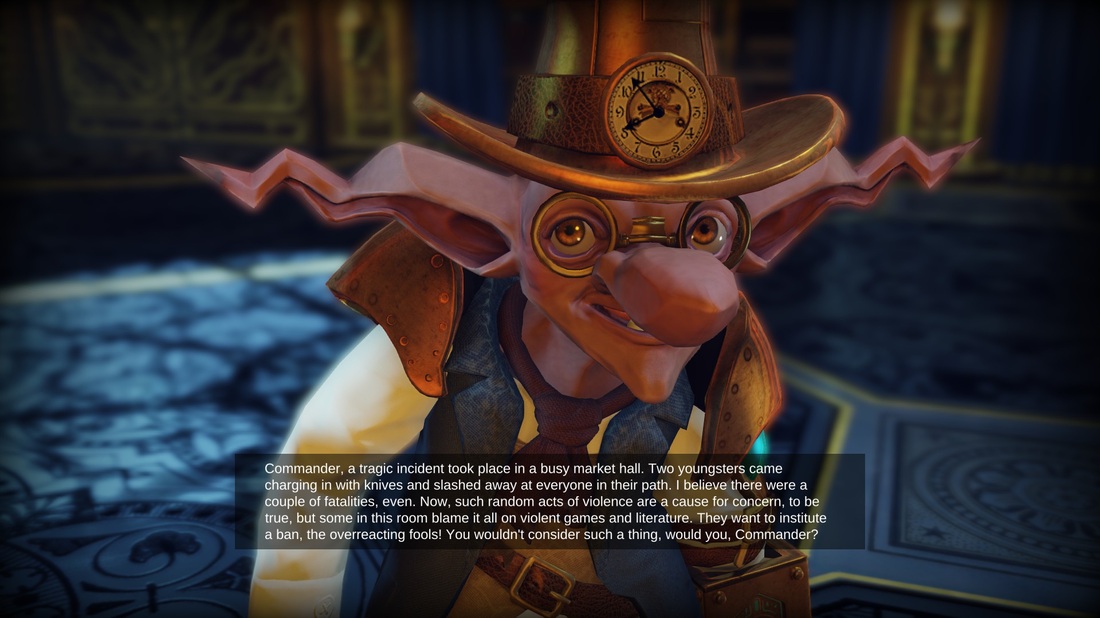
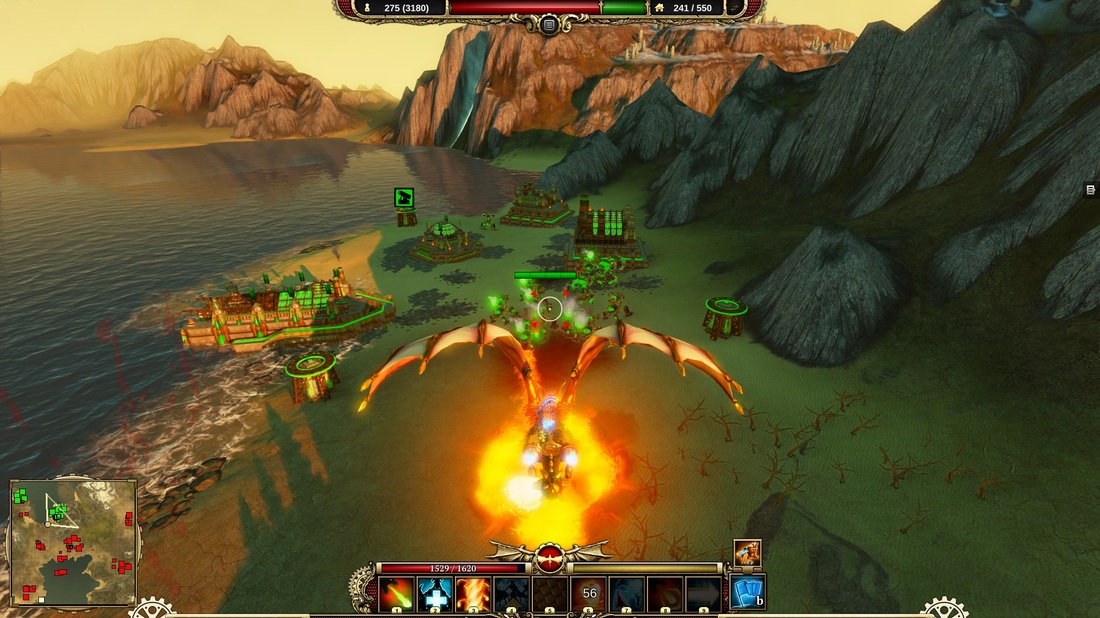
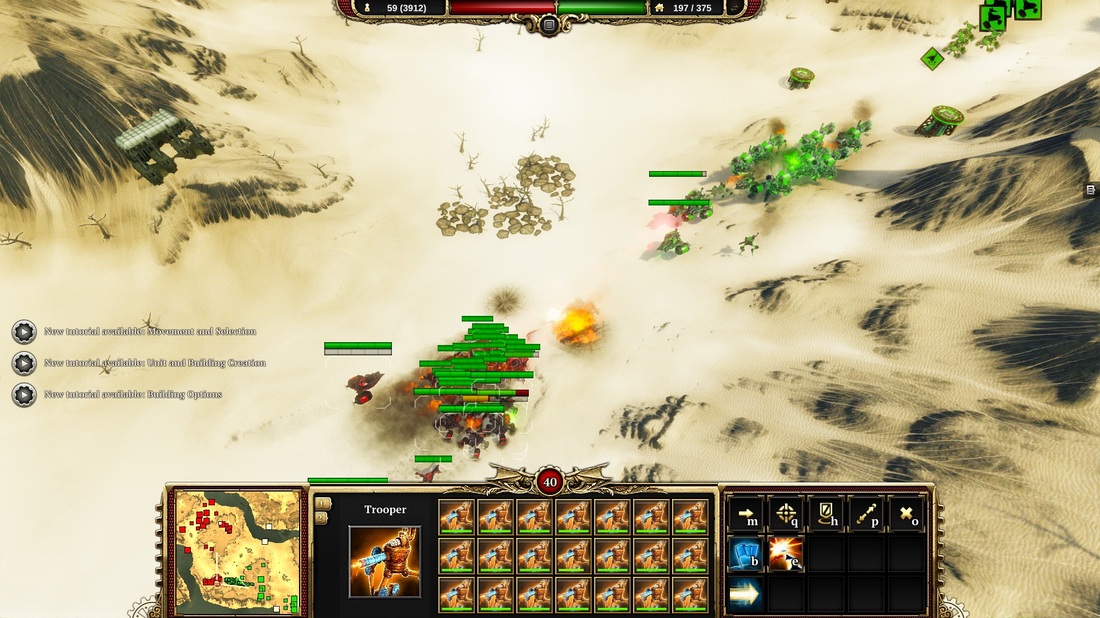
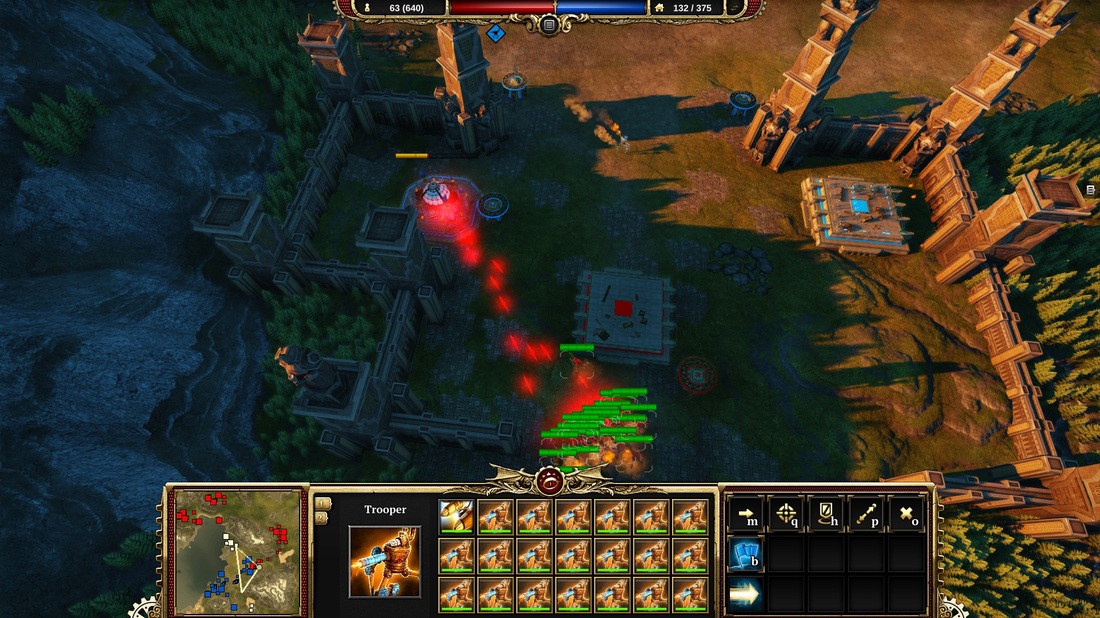
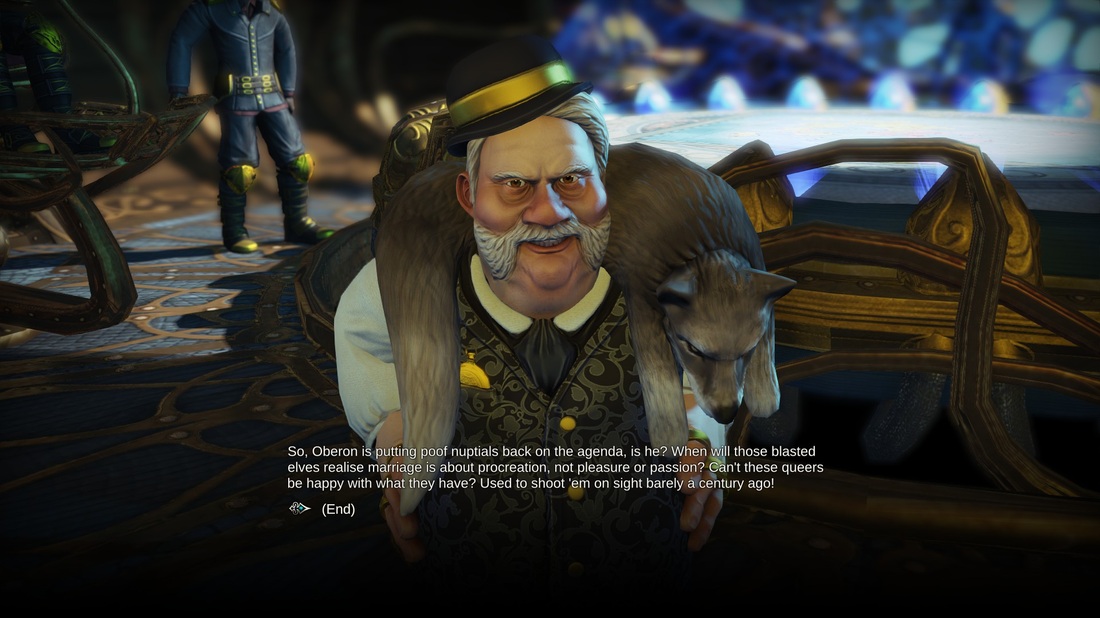
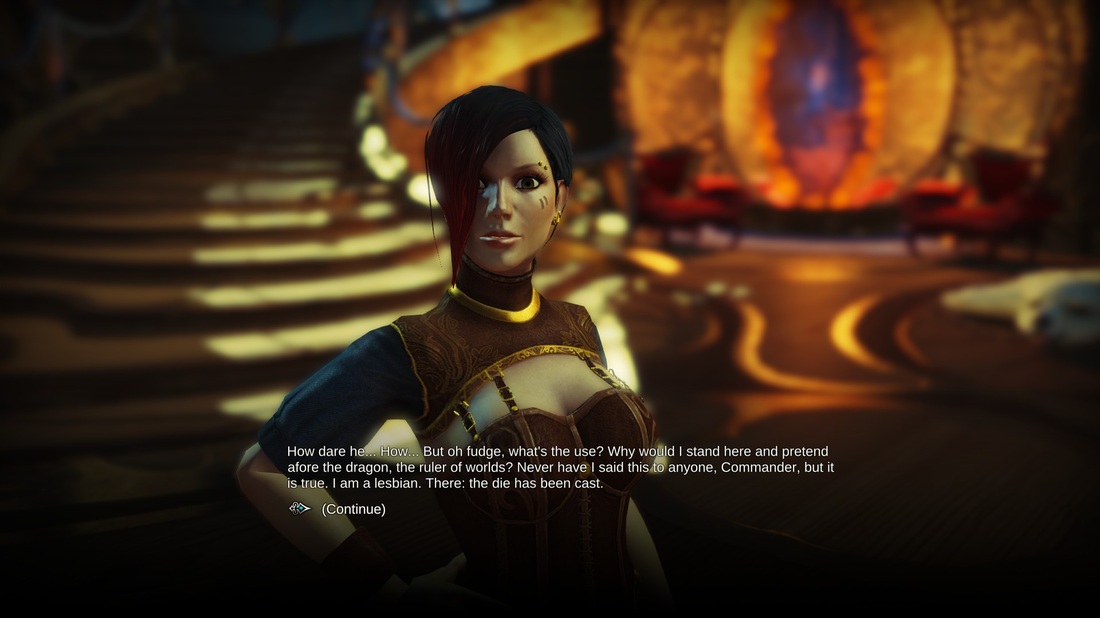
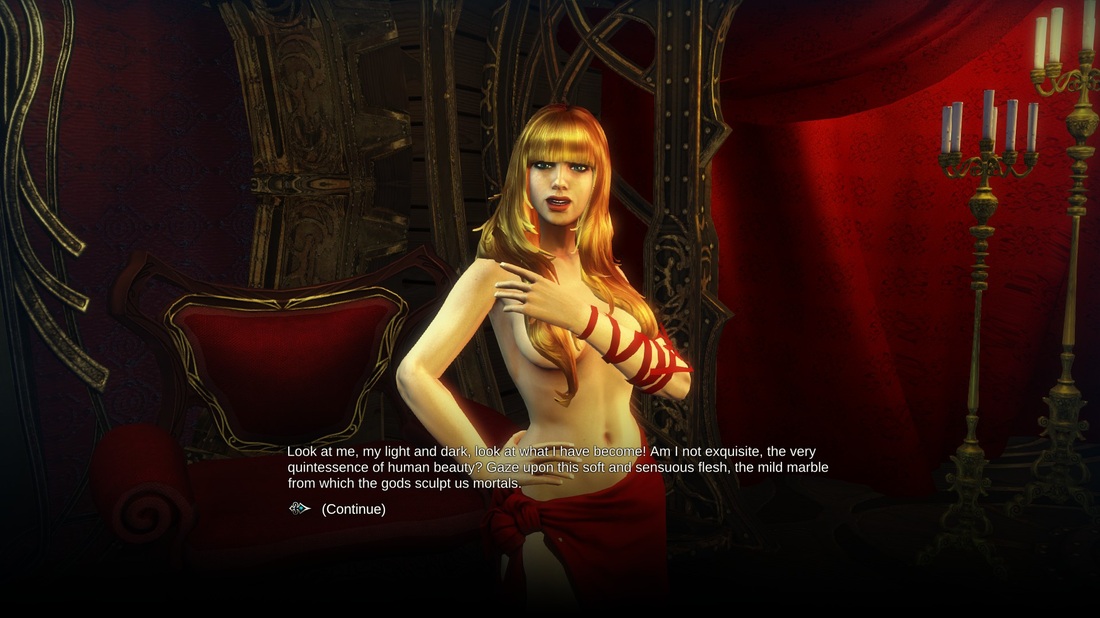
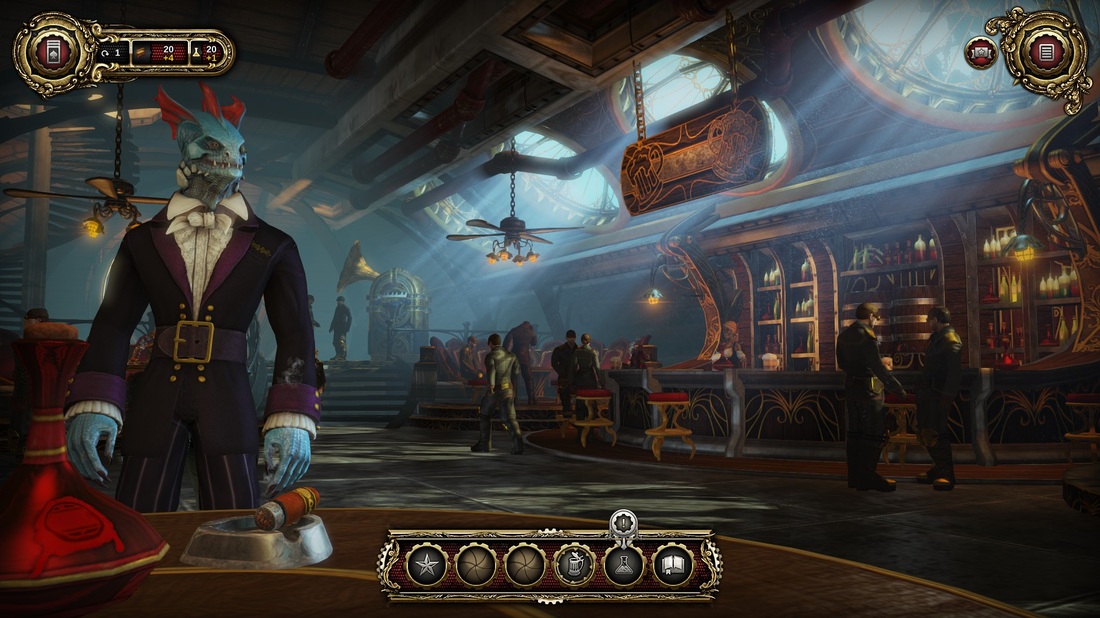
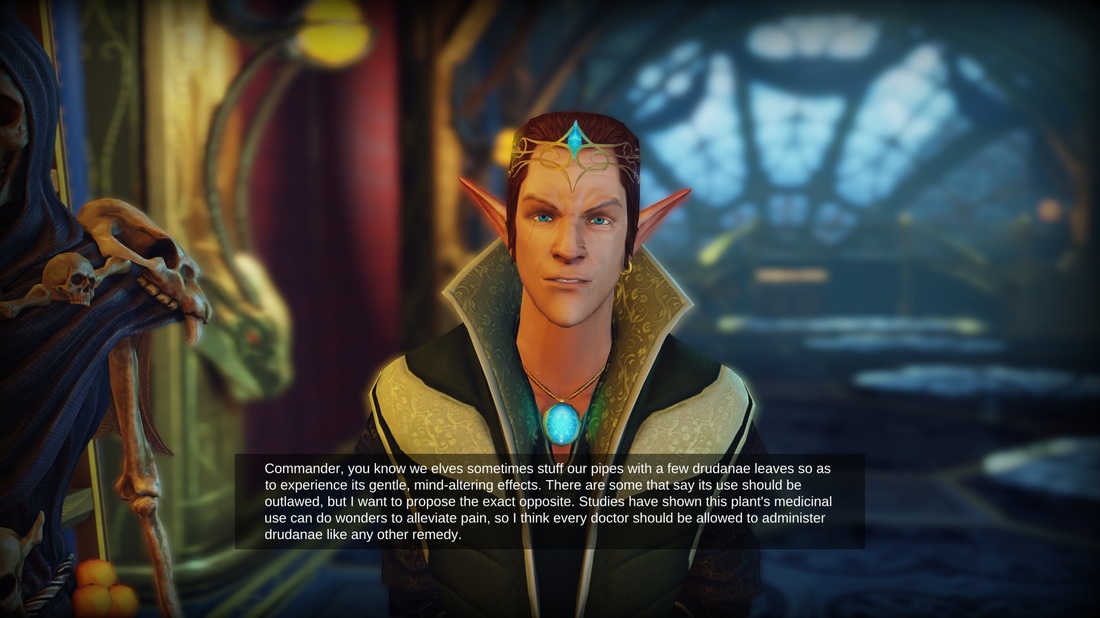
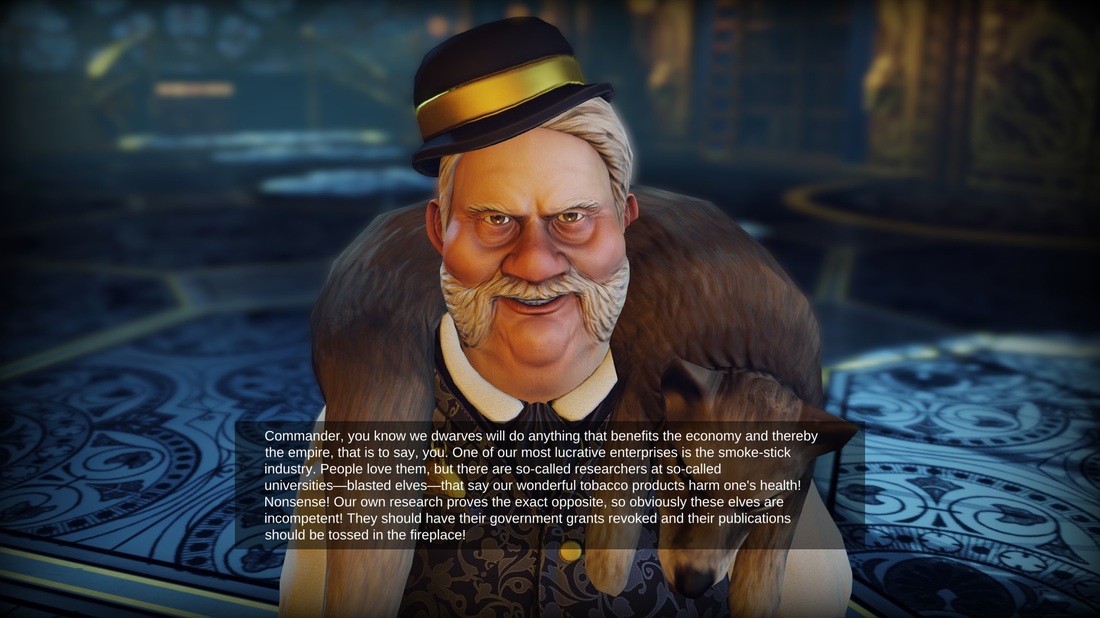
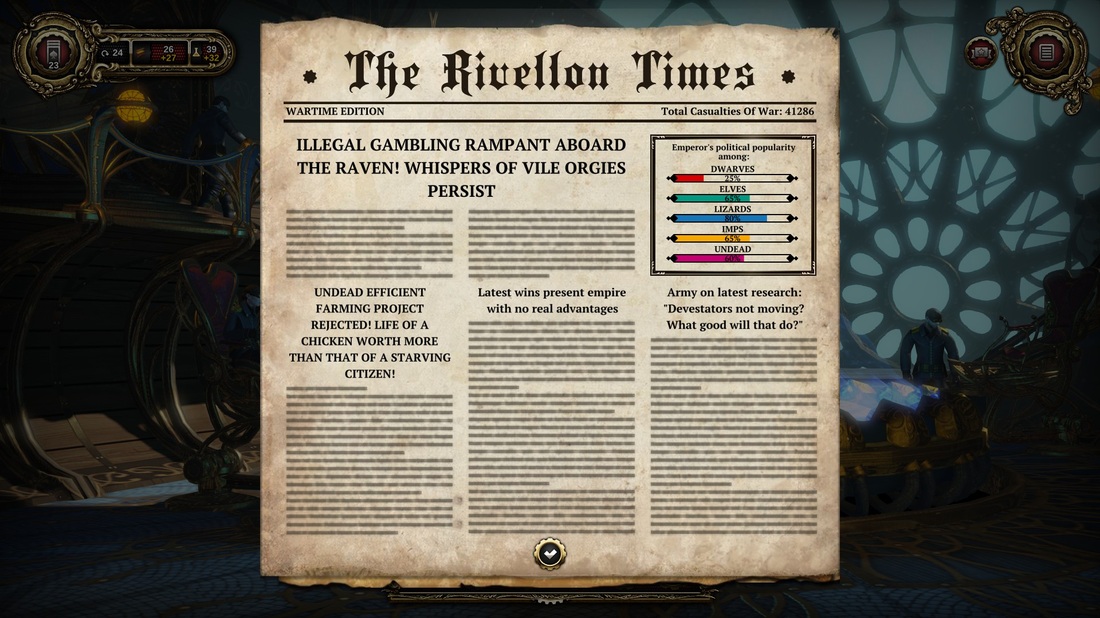
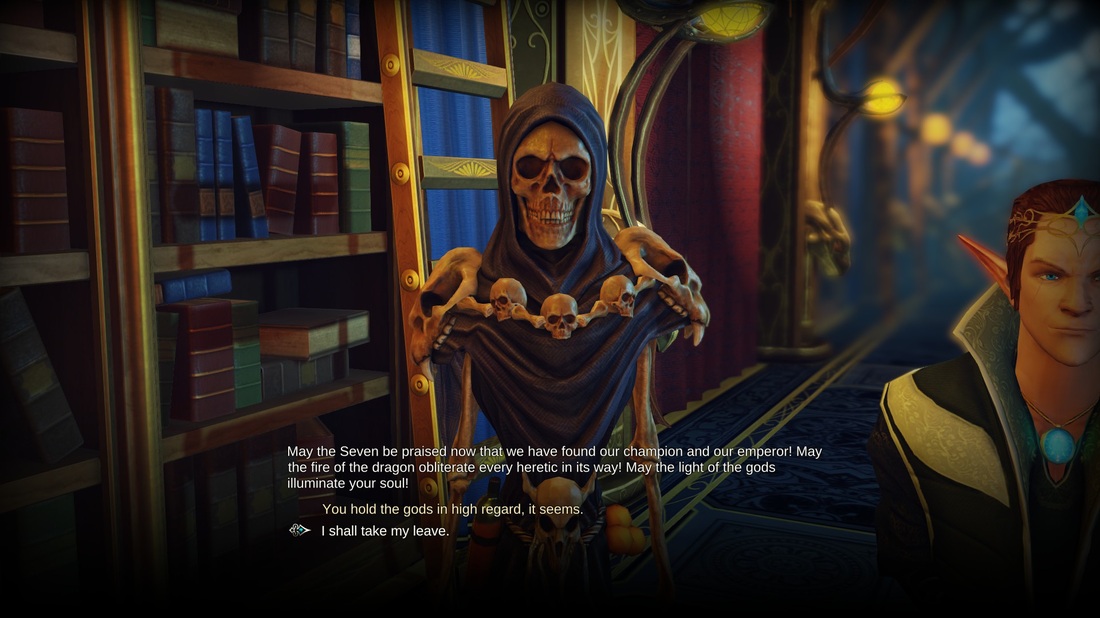
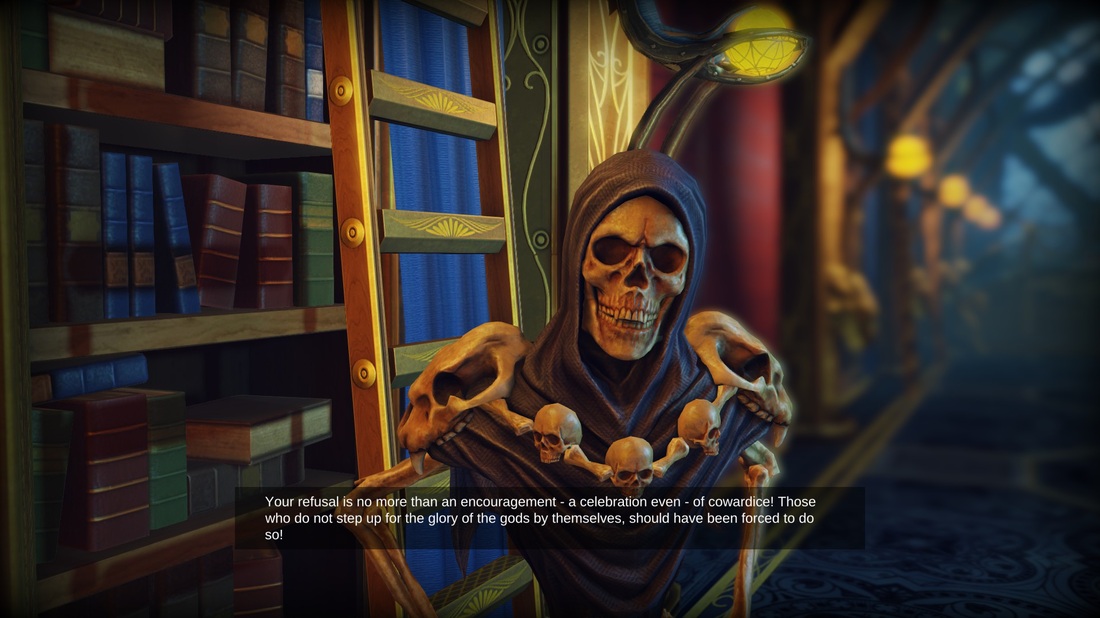
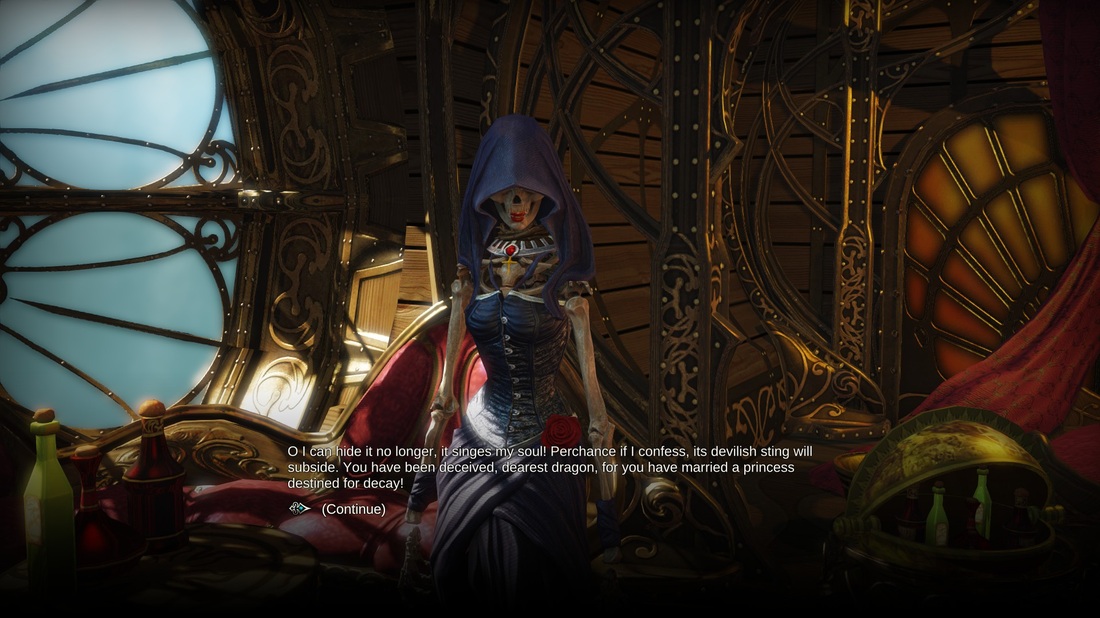
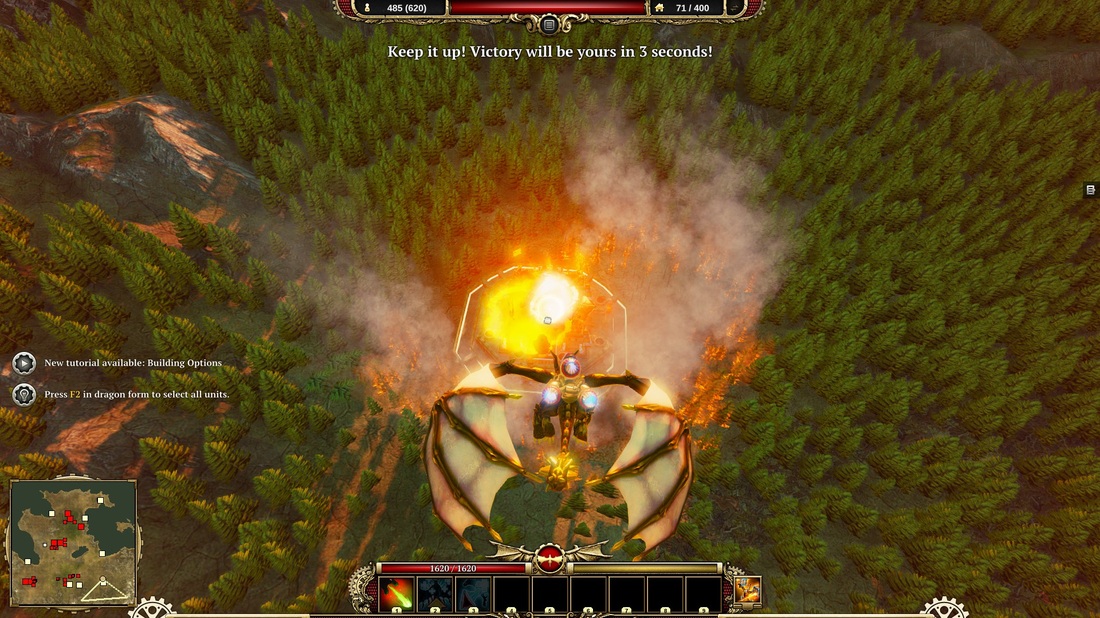
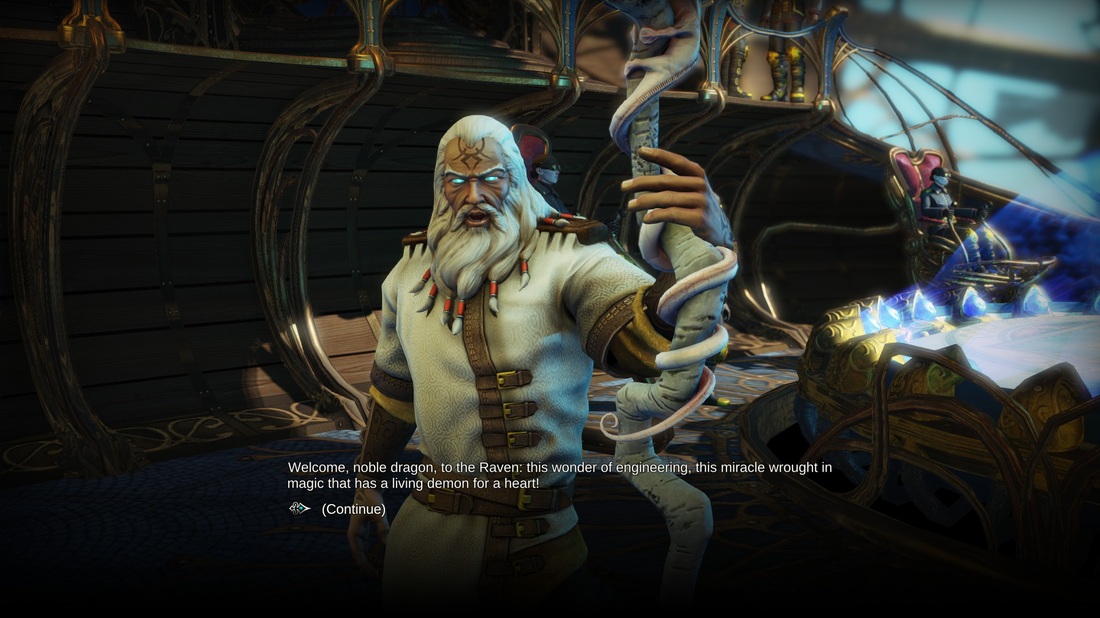
 RSS Feed
RSS Feed